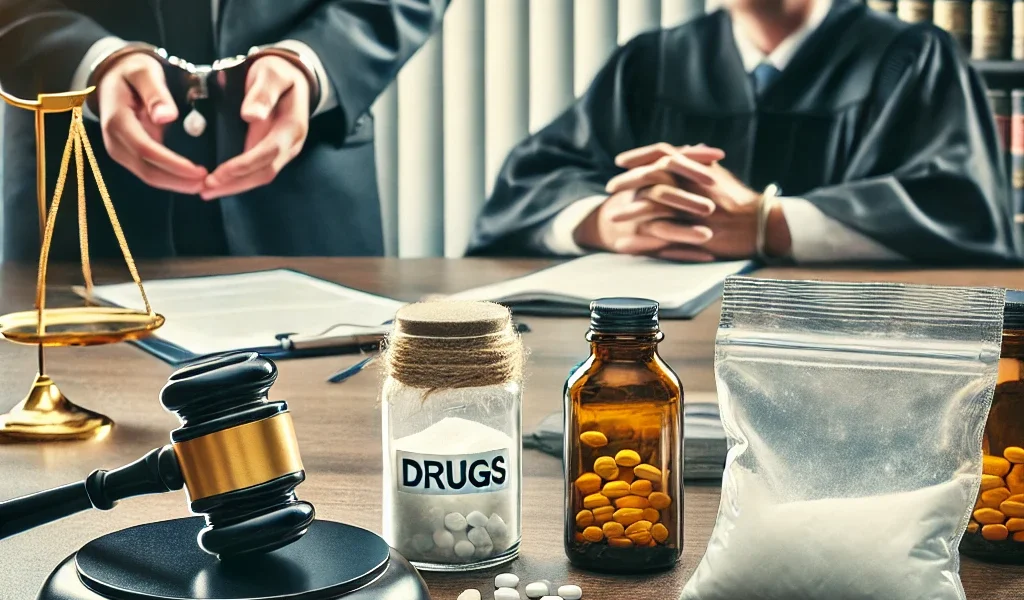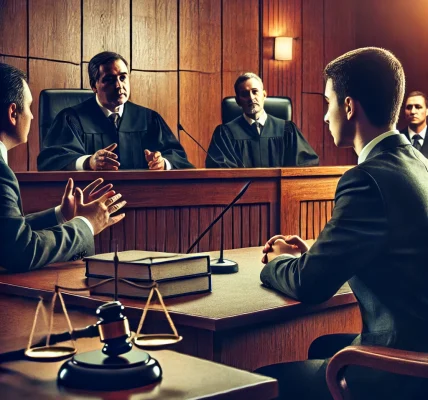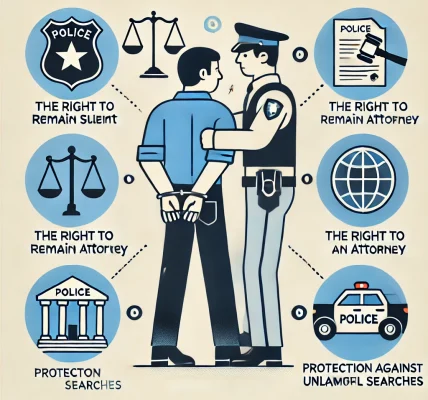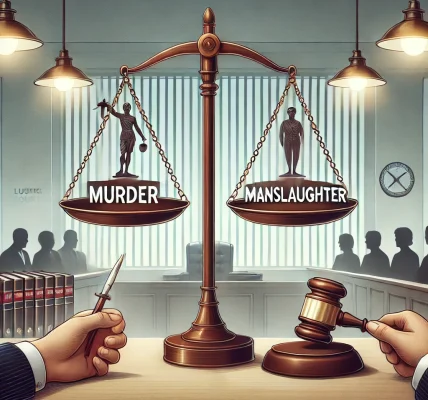Introduction
Drug crimes are among the most common offenses prosecuted worldwide. They range from simple possession of illegal substances to large-scale trafficking operations. Understanding the legal implications of drug-related offenses is crucial for individuals and businesses alike.
This article provides an in-depth look at drug crimes, including possession, trafficking, and the legal penalties associated with these offenses.
1. Understanding Drug Crimes
Drug crimes typically fall into different categories, depending on the nature of the offense. These offenses are prosecuted under both state and federal laws, with penalties varying based on the severity of the crime.
Common Types of Drug Crimes:
- Drug Possession: Having illegal substances for personal use.
- Drug Trafficking: Distribution and sale of illegal drugs.
- Manufacturing and Cultivation: Producing or growing controlled substances.
- Drug Paraphernalia Possession: Possessing items used for drug consumption or distribution.
2. Drug Possession: Laws and Consequences
Drug possession is one of the most frequently charged drug-related crimes. The severity of the charges depends on factors such as the type and quantity of the drug, prior criminal history, and the intent of possession.
Types of Drug Possession:
- Simple Possession: Carrying a small amount for personal use.
- Possession with Intent to Distribute: Possessing large quantities, which implies an intent to sell.
- Constructive Possession: When drugs are found in a place controlled by the accused (e.g., a car or home).
Legal Penalties for Drug Possession:
- Misdemeanor or Felony Charges: Depending on the quantity and type of drug.
- Fines: Can range from hundreds to thousands of dollars.
- Probation or Community Service: For first-time offenders or minor cases.
- Imprisonment: Sentences vary based on the jurisdiction and severity of the offense.
- Drug Rehabilitation Programs: Some courts offer alternative sentencing for non-violent offenders.
3. Drug Trafficking: A Serious Offense
Drug trafficking involves the transportation, distribution, or sale of controlled substances. This crime is considered more severe than simple possession due to its impact on public health and safety.
Factors That Affect Drug Trafficking Charges:
- Quantity of Drugs: Larger amounts lead to harsher penalties.
- Crossing State or International Borders: Federal laws may apply.
- Involvement of Minors: Using minors in drug distribution increases penalties.
- Weapons Possession: Carrying weapons during trafficking can lead to additional charges.
Legal Consequences of Drug Trafficking:
- Severe Prison Sentences: Ranging from several years to life imprisonment.
- Substantial Fines: Can reach millions of dollars.
- Asset Forfeiture: Confiscation of money, vehicles, and properties linked to trafficking.
- Mandatory Minimum Sentences: Some laws require specific prison terms regardless of circumstances.
4. Defenses Against Drug Charges
Being accused of a drug crime does not automatically mean conviction. There are several legal defenses that individuals can use to challenge these charges.
Common Defenses:
- Illegal Search and Seizure: If law enforcement violated Fourth Amendment rights, evidence may be dismissed.
- Lack of Knowledge: Proving the defendant was unaware of the drugs.
- Entrapment: When law enforcement induces someone to commit a crime they wouldn’t have otherwise committed.
- Lab Analysis Issues: If substances weren’t properly tested, charges could be dropped.
5. The Role of a Criminal Defense Lawyer
A skilled criminal defense lawyer can help individuals facing drug charges by:
- Evaluating evidence and identifying weaknesses in the prosecution’s case.
- Negotiating plea deals for reduced sentences.
- Representing clients in court for fair trials.
- Assisting with alternative sentencing options like rehabilitation programs.
6. How to Avoid Drug-Related Legal Issues
For Individuals:
- Avoid carrying or using illegal substances.
- Understand prescription drug laws.
- Be aware of surroundings and avoid associating with illegal activities.
For Businesses:
- Implement strict drug policies for employees.
- Educate staff on legal drug regulations.
- Cooperate with authorities in case of legal concerns.
7. Conclusion
Drug crimes, including possession and trafficking, come with serious legal consequences. Understanding these offenses and their legal implications is essential for both individuals and businesses. If accused of a drug crime, seeking legal counsel is crucial for protecting rights and achieving the best possible outcome in court.




